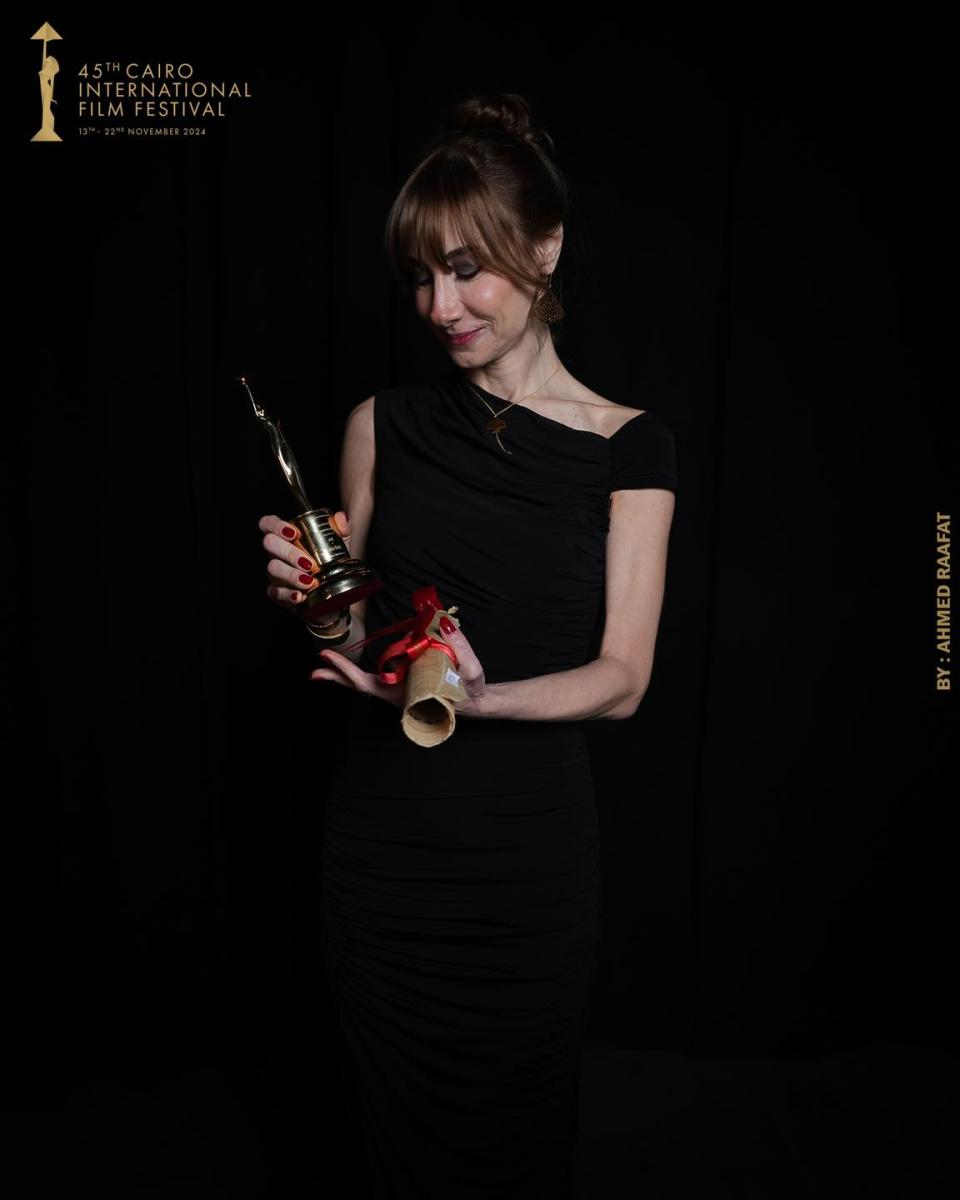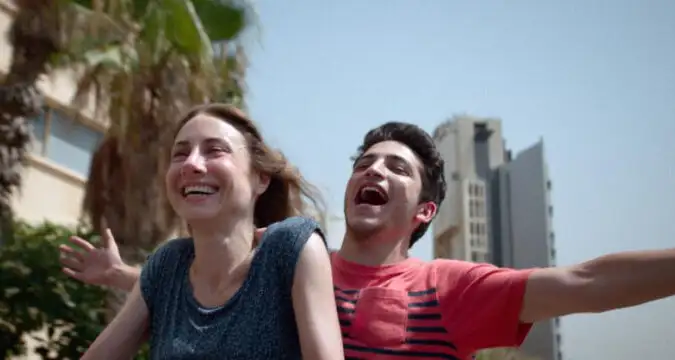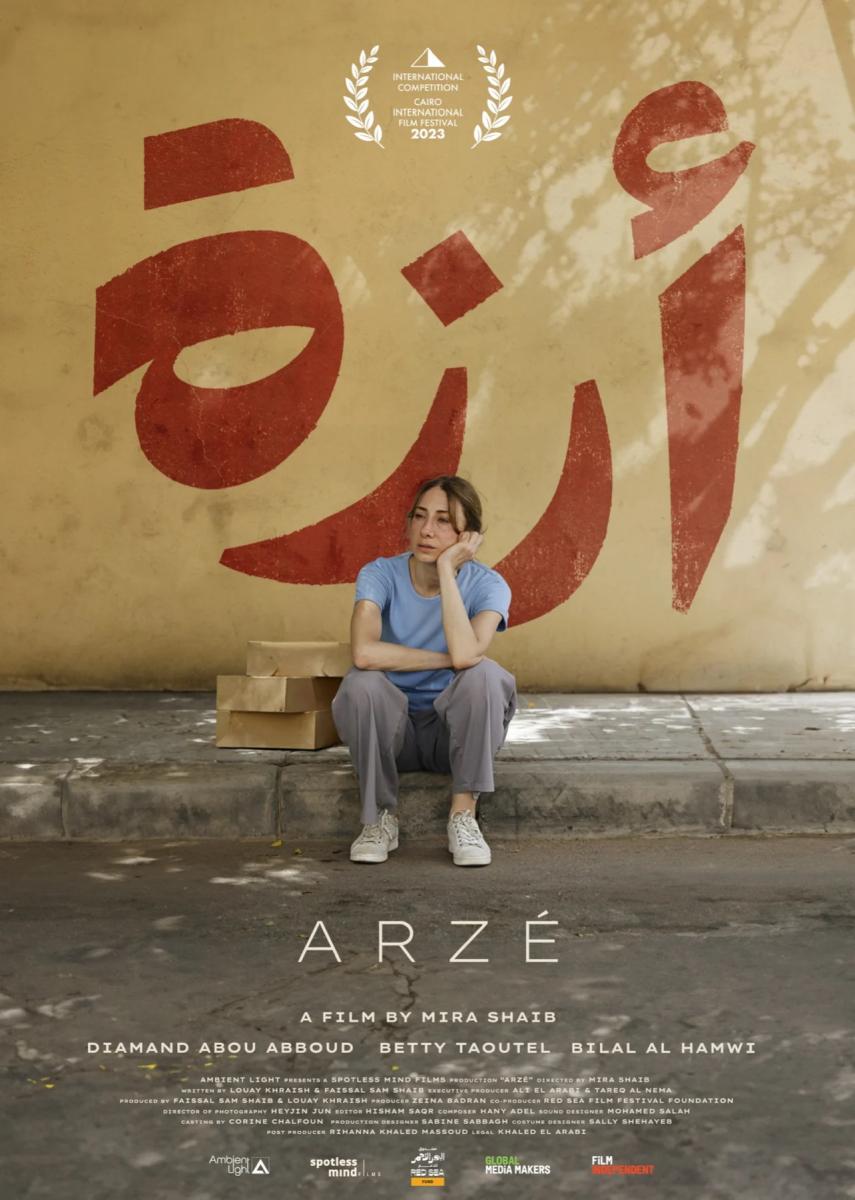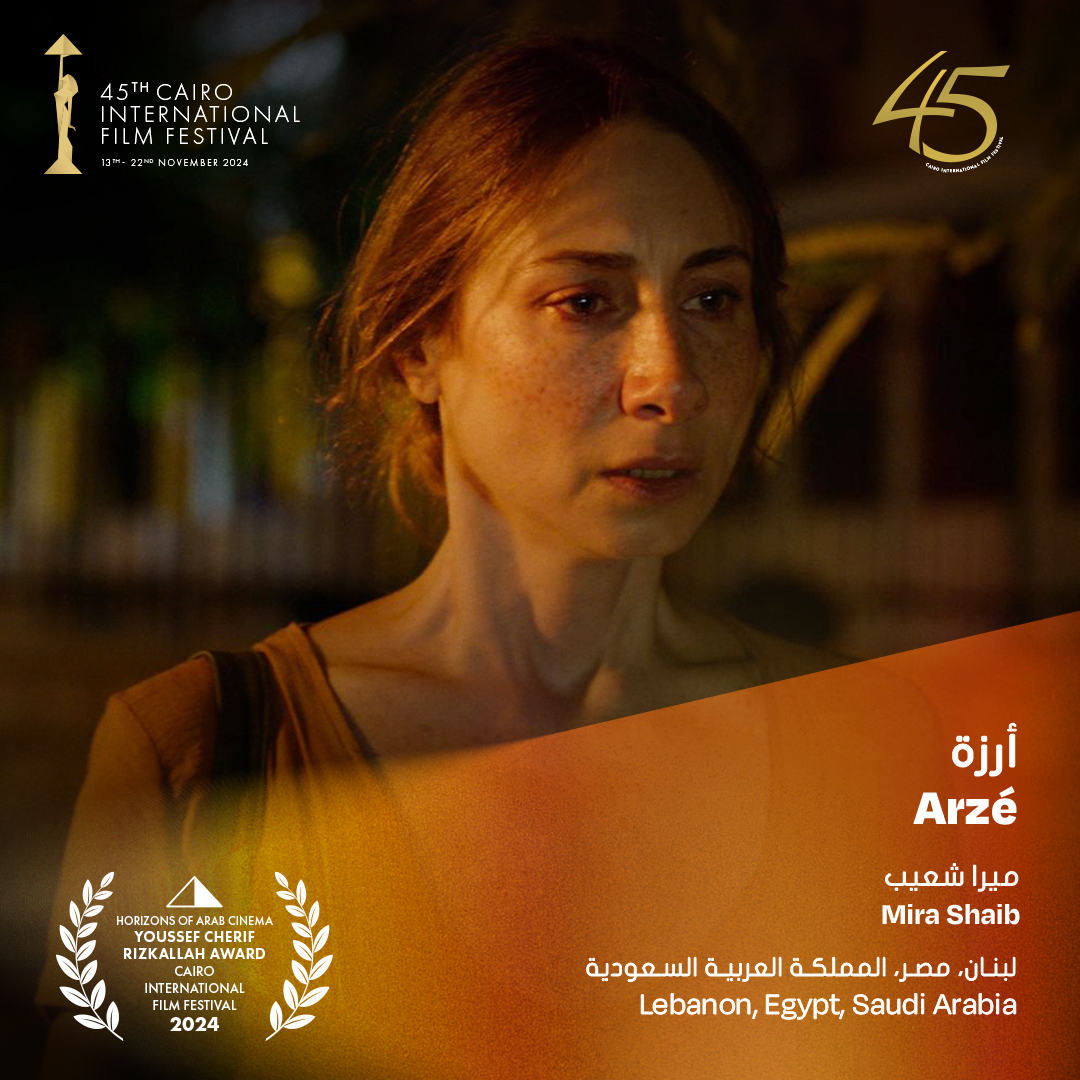“Arzé”: a moving quest in the heart of Lebanon, doubly awarded at the Cairo Film International Festival (CIFF)
The Cairo International Film Festival (CIFF), which has just ended its 45ᵉ edition, once again celebrated the best in world cinema. With its “horizons of Arabic cinema” section, the festival highlights works each year that explore the social and cultural realities of the region. Among the films awarded this year, Arzéthe first feature film by Lebanese director Mira Shaib, marked the spirits. The film, which tells the poignant and bright story of a single mother in Beirut, won two important prizes: the Youssef Sherif Rezkallah Prize for the best scenario and the prize for the best actress, awarded to Diamand Abou Abboud for her masterful interpretation of the title role. This one, called on stage, pronounced a few moving words when the price was awarded to him:
A daily life transformed into an odyssey
Arzé Plunges us into the life of a single mother, living in a small apartment in Beirut with her teenage son Kinan and her older sister, Layla (Betty Taoutel), recluse and agoraphobe. To support this atypical family, Arzé prepares Fatayersthese traditional furnished slippers, which she sells thanks to her son’s deliveries. But their fragile balance is threatened when, to buy an essential delivery scooter, Arzé steals the precious bracelet of his sister to pledge him.
When the scooter is itself stolen, it is a real descent into hell that begins. In the company of Kinan, Arzé embarks on a frantic race through Beirut to find the lost vehicle. But this quest, which seems to be material first, is transformed into an exploration of social and cultural fractures of Lebanon, where each meeting reveals the divisions, the prejudices and, sometimes, the solidarity which characterizes this complex society.
A story anchored in Lebanese diversity
What makes Arzé Particularly captivating is his way of tackling community divisions in Lebanon with subtlety and humor. In each district she crosses, Arzé must adapt to the codes, traditions and expectations of the dominant community. She buys accessories in a small shop – a veil, a necklace, a cross – which allow her to blend into each group.
The saleswoman of this shop, a funny but essential character, embodies universality in a fragmented country. By its benevolent neutrality and its constant smile, it becomes a metaphor of the possible unity beyond the differences, especially since it is only in its shop that all these distinctive signs of all these communities are grouped. Each return from Arzé to the store highlights the idea that, despite their differences, the inhabitants of Beirut share common points which bring them closer more than they believe.
Like Arzé herself, who has a name common to all Lebanese. Indeed, Arzé, which means “cedar” in Arabic, bears the name of this emblematic tree which is found on the Lebanese flag. This first name, symbol of resilience and unity, becomes a powerful recall of what links all Lebanese beyond their differences.


An actress at the top of her art
The role of Arzé, both intense and nuanced, rests on the shoulders of Diamand Abou Abboud, which delivers an overwhelming performance. Through her expressions, her gestures and her silences, she gives life to a strong but vulnerable woman, ready for anything for her family. Abou Abboud manages to make every moment credible, whether scenes marked with humor or deeply moving sequences.
The relationship between Arzé and his son Kinan, interpreted by Bilal Al Hamwi, a promising young actor, is also a strong point in the film. Their exchanges, often marked by tension, evolve throughout their common adventure, revealing a complicity and a mutual understanding that touch in the heart.
A critical look and full of humanity
With ArzéMira Shaib succeeds in a tour de force: using a simple story to explore complex themes, such as sectarianism, economic precariousness and family relationships. The scenario skillfully juggles between humor and gravity. The comic moments, often linked to the absurdities of community divisions (such as the different names given to a scooter according to the groups), are used to defuse tension while highlighting the realities of the country.
The director also paints a striking portrait of Beirut, through meticulously chosen decorations and colorful colorful characters. The city, vibrant but marked by its contradictions, becomes almost a character in its own right, accompanying Arzé and Kinan in their quest.
A universal message in a local setting
Beyond its Lebanese context, Arzé Carries out a universal message on resilience, family love and the ability to find solutions, even in the most desperate situations. THE Fatayers That Arzé prepares throughout the film and that it often distributes here and there, much more than a simple source of income, become a symbol of human connection and survival in a fragmented world. And also of unity, since common to all Lebanese.
A work to discover absolutely
With its mixture of emotion, social reflection and humor, Arzé is a real nugget of contemporary Arab cinema. Mira Shaib, for his first feature film, delivers a successful work, served by a masterful interpretation and a delicate staging.
This film, both deeply Lebanese and universal in its message, amply deserves honors received at the Cairo Festival. Very soon, it will also be presented in Tunisia, having been selected at the Carthage Cinematographic Days, confirming its place among the essential works this year.
Neïla Driss










